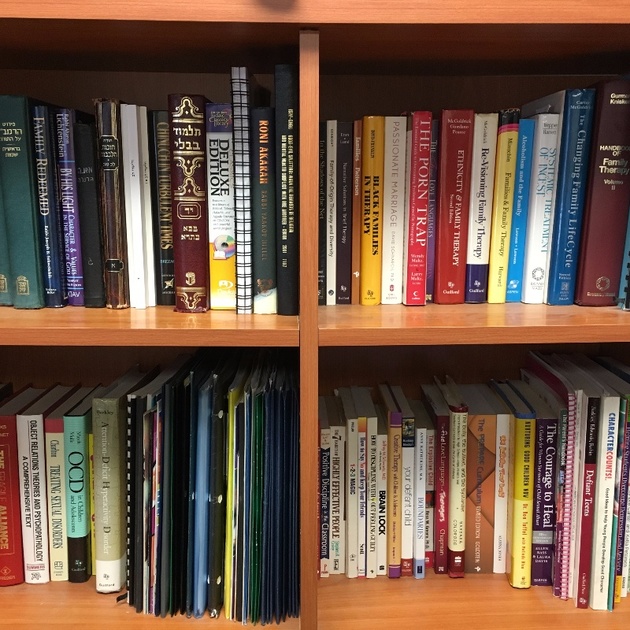
COVID-19 has turned our lives upside down. It’s killed many and sickened many more. The safety measures adopted to limit the spread of the coronavirus have greatly restricted our freedom of movement, shutting down community events, family visits, and play dates. Government-based restrictions have, until recently, shuttered businesses, schools, and houses of worship.
Not surprisingly, the COVID-19 crisis also impacts on our feelings. Most of us have found ourselves wading through feelings of sadness and grief. A good many of us have experienced a sense of uncertainty and, at times, frustration.
There is one feeling that is likely not at the forefront of our awareness, even as it is probably present, in one form or another. I am referring to our sense of abandonment.
Some instances of abandonment are more obvious than others. It’s not hard to imagine how those of us who are older and unable to leave our homes would feel isolated and abandoned.
There are less obvious instances of abandonment. What might be the internal experience of children and teens who, until now, spent all day in the company of their friends? Most are now stuck at home with parents, who may or may not have time for them.
Abandonment can occur in religious settings. There are community members who’ve wished that their mentors had reached out more, in the early weeks of the crisis. Other community members abided safety directives that had been crafted by their spiritual leaders, only to wonder why some of those leaders themselves seemed to ignore the directives.
Some of us might even feel abandoned by Hashem. Perhaps we were just starting to show a profit, when the virus wiped out our business. We might have turned a new page on Tefillah Betzibur or Davening itself and then Hashem allowed the virus to disrupt everything.
We are not without precedent. Biblical sources record Queen Esther (and others) crying out, to Hashem, “Why have you abandoned me?” All the same, when we feel that our communities, our spiritual mentors, and even Hashem have abandoned us, it can feel alarming - as though our relationships with them are slipping away from us.
This need not be so. Our sense of abandonment is not necessarily an indictment of those on whom we’ve relied. It doesn’t necessarily spell the end of our relationships. That’s because our sense of abandonment is primarily anchored in subjective experience; it doesn’t always reflect objective reality – at least, not in the fullest sense.
Stated differently, we might feel abandoned, even when those important to us didn’t intentionally withhold their presence. Moreover, those who apparently failed us may not have been as self-absorbed, as we imagined.
Why, though, does our sense of injury feel both real and powerful? One answer is that abandonment typically echoes a deep-seated set of emotional experiences that were seared into our brains at an early age.
Most of us first experienced abandonment, as infants, in the moments that our caregiver could not immediately be present for us. Back then, we had little or no sense of the continuity of time or of the constancy of people. As such, our caregiver’s momentary absence meant, to us, both that our care had vanished and that our caregivers had ceased to exist. It would feel akin to our falling off a cliff, into nothingness.
Most of us learned, over the course of time, that the absence of care and of caregivers was temporary. Our caregivers would eventually return. With their return would come the nurturance and sense of worthiness we so deeply craved. As we matured, the desperation of early abandonment was mitigated by a growing sense of trust.
On occasion, though, the archaic experience, of being utterly abandoned, reemerges. For children in school, it bubbles up, when they face repeated bullying. For those of us beyond school, it gets dredged up, upon the death of a loved one or the end of a relationship.
The COVID pandemic, in its own way, stirs up primal feelings. We may feel lost or unworthy. We might find ourselves feeling aggrieved or viewing the world cynically. We may hold, at arm’s length, the (belated) overtures of our mentors.
The best way to manage our experiences of abandonment is not to deny their presence, but rather to find a pathway through them. This means accepting that:
- We may first become aware of our sense of abandonment, through our behaviors, thoughts, or related feelings.
- Our feelings, even the painful ones, are there to help us.
- The pathway through our difficult feelings includes identifying the current, specific triggers to our sense of abandonment.
- It also entails accepting that the feelings associated with abandonment can run deep.
- Finally, our feelings of abandonment can oftentimes guide us forward, in our important relationships
We may initially notice our experience of abandonment , when we find ourselves avoiding certain people or places. We might discover that we’ve begun to think in more cynical ways. We might, sometimes, sense a wave of sadness washing over us.
Our capacity to experience feelings is a gift to us. Our positive feelings generally draw us toward the people who are helpful to us. Inversely, our negative feelings tend to create distance between us and those who are harmful or otherwise aversive.
It is helpful for us to identify the events and interactions that led to the feelings of abandonment. If nothing else, it proves to us that we’re not crazy, that it’s not all in our head, that we are not simply ungrateful and undeserving.
We benefit, though, by taking at least an occasional step back from our feelings. This allows for insight into their intensity and the larger context from which they emerged. At such moments, we are not renouncing our feelings, so much as distinguishing, essentially separating, the parts that are grounded in the present from the parts that are rooted in the past. This is particularly useful, when we feel wounded, even as we sense that those on whom we’d counted were not necessarily negligent toward us.
Owning our feelings – at least in a subjective sense – empowers us to approach the powerful people in our lives, who, in some way, failed us. When relevant, it allows us to request clarification. Owning our feelings may, further, give us the courage to describe, to those important to us, the ways we felt abandoned. It may even spur us to confide to them that we need them to be more present.
Opening ourselves up to our feelings may help us clarify which of our significant relationships are no longer viable. On the other hand, as with Queen Esther (and Hashem), it helps us deepen those of our relationships that are healthy and that possess the greatest potential for healing.
Glossary of Terms:
Davening: Prayer (a Yiddish term)
Hashem: G-d (literally "The [Holy] Name")
Tefillah Betzibur: PUblic Prayer (a Hebrew term)
Photo Credit: Tyler Callahan; UnSplash
 Previous
Previous

